- Home
- Greg Keyes
The Born Queen Page 6
The Born Queen Read online
Page 6
Pass, he thought. I don’t care what you are or where you’re going. Just pass.
But it didn’t, of course. Instead, he heard it pause and snuffle and then saw the actinic flash of its eyes. It stepped from the trees and into the field, moving toward Aspar as he waited in the cover of the trees on his side.
“Hello, luvileh,” he muttered, quickly thrusting four more arrows into the soft earth before him. No point imitating a stump anymore.
It was something new, not a monster he had seen before. From a distance, the thing resembled a bull crossed with a hedgehog. Bony spines bristled from it everywhere, and it was massively front-heavy, with colossal bunches of muscle above forelegs easily twice as long as the hind legs. Its head was blocky, with a single horn spearing forward so that it looked almost like an anvil. The eyes were set deep in bony plate.
He had no idea what to call it. Besides the eyes, he didn’t see anything that might be soft.
It bellowed, and he noticed sharp teeth. Were all sedhmhari carnivores? He hadn’t met one that wasn’t.
“You make pretty babies, Sarnwood witch,” he grunted.
And here it came.
His first shot skittered off the armored skull, as did the second. The third lodged in the eye socket—or he thought it did, but after a heartbeat it fell out, and the eye was still there.
It was fast and even bigger than he’d thought. It bellowed again, a sound so loud that it hurt his ears. He had time for one more arrow but knew even as he released it that it was going wide of the eye. The monster bounded even faster, hit the ground, and crouched for the final leap, its forelimbs lifted up almost like a man’s, reaching for him…
Then the ground collapsed beneath it, and this time it shrieked in surprise and anger as it fell hard onto the sharpened stakes four kingsyards below. A catch snapped above Aspar, releasing a sharpened beam that had been suspended above the pit. He couldn’t see it hit but heard a fleshy thud.
Aspar let out a long breath, but an instant later a massive paw—a thick-fingered hand, really—clawed up over the edge of the hole. Aspar scooted back against a tree and used his bow to lever himself up.
The other hand came up, followed by the head. He saw even more of a family resemblance to the utin he once had fought, but if it could speak, it didn’t. It strained, blood blowing from its nostrils, and began to crawl from the pit.
“Leshya!” Aspar snapped.
“Here,” he heard her say. He felt the wind as another massive log came swinging down, this one aimed to skim along just above the trap. It hit the beast in the horn, crushing it back into its skull, and it vanished into the hole again.
Aspar turned at Leshya’s soft approach. Her violet eyes peered at him from beneath her broad-brimmed hat.
“You’re all right?” she lilted.
“No worse than I was this morning,” he replied. “Aside from the indignity of being bait.”
She shrugged. “Should have thought of that before you went and got your leg broken.”
She walked over to the pit, and Aspar limped after her to see.
It didn’t know it was dead yet. Its flanks were still heaving, and the hind legs twitching. But the head was cracked like an egg, and Aspar didn’t imagine it would breathe much longer.
“What in Grim’s name do we call that?” he grunted.
“I remember stories about something like this,” she said. “I think it was called a mhertyesvher.”
“That the Skaslos name for it?”
“I couldn’t pronounce the Skaslos name for it,” she replied.
“Notwithstandin’ that you are one,” he said.
“I was born in this shape, with this tongue,” she said. “I’ve never heard the language of the Skasloi. I’ve told you that.”
“Yah,” Aspar assented. “You’ve told me.” He looked back at the dying beast and rubbed the stubble on his chin. “Well,” he mused, “I think it’s a manticore.”
“As good a name as any,” she said. “Now, why don’t we go rest.”
“I’m not tired,” Aspar lied.
“Well, there’s no reason to stay here. It’ll be days before the poison clears out, even if it rains.”
“Yah,” Aspar agreed.
“Come on, then.”
He slung the bow on his back and looked around for his crutch, only to find Leshya holding it out for him. He took it silently, and they began walking back through the trees. It got harder when the slope turned upward, and they followed a little switchback trail up an ever-steepening way. At last it opened onto a rocky ridge that gave a good view of the scatters of forest and meadow below. A deep ravine fell from the other side of the crest, and across that, white-capped mountains rose against the turquoise sky. The western horizon was also bounded in peaks. With their back to the chasm and a view for leagues in every other direction, it was here they usually spotted the monsters when they came; that was why Leshya had picked the spot to build the shelter. It had started as a lean-to made of branches, but now it was a comfortable little four-post house with birch-bark roof.
Aspar didn’t remember the building of it; he’d been deep in the land of Black Mary, in and out of a fever that jumbled three months into a haze of images and pain. When it was finally gone, it left him so weak that even without a broken leg he couldn’t have walked. Leshya had tended him, built traps, fought the monsters that appeared more and more frequently.
The climb left him winded, and he sat on a log, looking out over the valley below.
“It’s time to go,” he said.
“You aren’t ready to travel,” Leshya said, poking the banking of the morning’s fire, looking for embers.
“I’m ready,” he said.
“I don’t think so.”
“You came after me with your stitching still wet,” Aspar said. “I’m in better shape than that.”
“You’re wheezing from a little walk,” the Sefry pointed out. “That ever been the case before?”
“I’ve never been flat on my back for four months,” Aspar replied, “but I can’t spare any more time.”
She smiled, slightly. “Are you that much in love with her?”
“None of your business,” he said.
“Us leaving now could get us both killed. Makes it my business.”
“I want to find Winna and Ehawk, yes. But there’s more to it. I have duties.”
“To whom? To that girl-queen Anne? You’ve no idea whether she’s alive or not. Or who sits the throne of Crotheny. Aspar, the Briar King is dead. There’s nothing left to check the sedhmhari. There are more of them every day.”
“Yah. And sitting here killing them one at a time won’t help.”
“What do you think will?”
“I don’t know. I’ve thought I might go back to where he was sleeping, find something.”
“In the Mountains of the Hare? That’s twenty leagues from here as the eagle goes, and we aren’t eagles.” Her eyes slitted. “Do you have some reason to think you should go there?”
“No.”
“No?” She sighed. “I know you, Aspar White. You just want to die fighting for the King’s Forest. This one here isn’t good enough.”
“It’s not—” He stopped. Not mine, he finished silently, imagining the great ironoaks of his youth rotting into putrid jelly, the bright streams clogged with death, the ferny glens choked in black thorn. Did he really want to see that?
“You came to find me,” he said, “all those months ago. You talked about having a duty other Sefry have abandoned. What is it?”
She had found some coals and was coaxing them to life and adding tinder from a pile near the pit, stirring up the scent of hickory and juniper. “I don’t know,” she said. “I don’t know if I can tell you that.”
“I already know what you and your kind really are. After that, what secret is worth keeping?”
“I told you, I’m not sure. I’m trying to maun it out.”
“Well, fine; find me when yo
u do. I’m going now.”
“You don’t even know where we are,” Leshya said.
“Well, I reckon if I head south, I’ll eventually come across someplace I know,” he replied.
“We’re lucky I remembered this place,” she said. “Otherwise they would have caught us long ago.”
“Who? Fend?”
“And his people.”
“Your people.”
She acknowledged that with a bow of her head.
“Well, I’m sure they’ve stopped looking by now,” he replied.
“I doubt that,” she said. “You were with the Briar King when he died. He might have told you something.”
“What do you mean? So far as I know, he can’t speak.”
“That doesn’t mean he didn’t tell you something.”
Aspar remembered the shocking rush of visions he’d had as the Briar King died.
“Yah,” he said. “But if he told me anything, I don’t know what it was.”
“Yet.”
“Sceat,” he muttered.
“Aspar, you could be the most important man in the world right now. You might be the only one who can stop what’s happening—save the King’s Forest, if that’s the only thing that means anything to you.”
“Is that why we’re still here? You’re hopin’ I’ll have some sainty vision?”
“I can’t think of any other hope to cling to. It’s why I’ve kept you safe.”
He looked at her. “That you have,” he said. “And I’m grateful. But there’s no need for you to take my part anymore. I’m strong enough now.”
“You aren’t, and you know it.”
“I won’t get stronger sittin’ about here,” he said. “And you know that. Now, if you think I’m so important, I reckon you can come with me. But I am going.”
She had a fire now. “Rabbit for supper,” she said.
“Leshya.”
She sighed. “Another four days,” she said.
“Why?”
“You’ll be four days stronger, and the moon will be dark. We’ll need that, I think.”
Aspar nodded and looked back to the east. He pointed at a nearly invisible talus slope that vanished behind a ridge.
“Is that the pass we came in through?” he asked.
She nodded.
“I reckoned.”
“The only way in or out unless you’re a bird or wildbuck.”
He nodded, then squinted. “We might not get that four days,” he said.
“Ilshvic,” Leshya snarled. He didn’t know what she’d said but could make a pretty good guess.
A line of mounted figures was coming through the pass, a lot of them.
CHAPTER FOUR
PROPOSITION AND DISPOSITION
THE BROADSWORD cutting toward Cazio was moving almost too fast to see, and he suddenly understood the nasty grin on the monk’s face. Cazio reacted from years of training, jabbing his lighter but longer weapon out in a stop-thrust that should have pierced the man’s sword wrist. It didn’t, though, because—impossibly—the monk checked his swing. He stepped back and regarded Cazio for a moment, just out of measure.
“Interesting,” he said. “I’ve never met a swordsman like you. Are you from Safnia?”
“They have butchers in Safnia,” Cazio panted, trying to both watch the man and check his peripheral vision. Sounds of battle were everywhere. “But the only swordsmen in the world come from Vitellio.”
“I see.” The fellow grinned again. “Vitellio. Home of the father Church.”
The man had gray eyes, darkish skin, and an accent Cazio couldn’t place.
“Tell me,” the man went on. “Why do you follow this heretic queen, you a man from the very birthplace of our faith?”
“I like the color of her hair,” Cazio replied, “and the sort of people she associates with.”
“When I move next,” the man warned, “you won’t have time to see the cut that kills you. Lay down your arms and you will be well treated.”
“I’m already well treated,” Cazio replied.
“You know what I mean.”
Cazio sighed and relaxed his guard.
“See there,” the man said. “I knew you looked sensible.”
Cazio nodded and lunged, throwing his front foot forward and pushing with the back.
The monk blurred toward him, and as Cazio let his lunge collapse into a forward duck, he felt hair shaved from the top of his head. The monk ran onto his rapier so hard that the hilt slammed into his solar plexus and the grip was wrenched from Cazio’s hand. The monk fell, hit, rolled, and sprawled, eyes glazing and blood pumping.
“As long as I can draw you into attacking when and where I want,” Cazio informed him, “I don’t need to be able to see you.”
The monk jerked his head in affirmation. Cazio could see that his spine was broken.
“Come get your sword,” the monk suggested.
“No, I’ll wait a moment,” he replied.
“You don’t have a moment,” the man pointed out.
Cazio followed his gaze and saw that he didn’t. Two of the man’s brethren were rushing toward him.
Grimly, he started toward the fallen broadsword, only a yard away.
Then he felt something like a thousand spiders racing across his skin. His windpipe closed, and his heart shuddered, stopped, and started again, faster than before. He gasped and fell to one knee but fought back up.
But there was no need. His attackers were sprawled motionless on the ground, their corpses twisted unnaturally.
He turned and found Anne two kingsyards behind him. Her eyes were green ice, looking somewhere he couldn’t see. Her body was taut beneath her black and ocher riding habit, like the string of a lute tightened almost to breaking.
She shifted her gaze to him, and his heart suddenly went strange again.
Then her face softened and she smiled, and he swallowed as the pain in his chest eased. He started to say something, but he saw she wasn’t looking at him anymore but instead studying the grounds of the monastery.
“That’s it, then,” she said softly. “That’s all of them.”
“That’s what we thought before,” Cazio said, lifting himself to his feet. “Before these fellows came up from behind.”
“True,” Anne murmured. “I miss things still. They just arrived, I think—from the forest.”
“And there could be more. Anne, you ought to get inside. Your Sefry can sweep the woods around.”
She shot him a smile that he suddenly suspected was condescending. But then, she had just killed two men without touching them, and it wasn’t the first time.
“You can still bleed,” he pointed out. “An arrow can still kill you. I can’t quite catch an arrow.”
“True,” Anne said. “Secure me. I am at your disposal.”
The monastery Saint Eng stood on a small hill surrounded by wheat fields and pasture, save for one dark finger of forest that prodded up to it from the south. The clock tower of the town of Pale could be seen in the west, near the line of the same forest. It wasn’t a big place, just a few out-buildings and barns scattered around a squat, squarish structure with a single rather inelegant tower rising from the southeast corner.
Before they had taken ten steps, five of Anne’s cowled Sefry guard were with them, led by their amber-eyed captain, Cauth Versial.
“Majesty,” Cauth said, taking a knee. “Apologies. They drew us away from you.”
“It’s nothing,” Anne said. “You see my Cazio was able to handle it.”
My Cazio? Why had she phrased it like that?
“Nevertheless,” the Sefry said, “I shouldn’t have left you with only one guard. But the inside of the monastery is secure now.”
“Good,” Anne replied. “We’ll go there, then. And I think I’d like to dine.”
“It’s nearly that hour,” the Sefry said. “I’ll have something fetched.”
By the next bell Cazio was sitting with Anne in a small roo
m on the west side of the building. St. Abulo was driving the sun down the Hesper sky, but he still had a few bells to go this long summer day.
“I’ll miss this,” Anne sighed, gazing out the window and sipping her wine.
“Miss what?”
“These outings.”
“Outings? You mean our fights with the Church?”
“Yes,” she replied. “Just sitting on the throne is dull, and the details of war—well, the generals don’t really need me to work those out. This feels real to me, Cazio. I can see the faces of those we rescue.”
Cazio sniffed his wine, then raised it up.
“Az da Vereo,” he toasted.
“Yes,” Anne agreed. “To the real.”
They drank.
“This is Vitellian,” he murmured. “From the Tero Vaillamo region if I’m not very wrong.”
Anne tilted her head. “Why does it matter? Wine is wine, isn’t it?”
For a moment Cazio had no idea what to say. He’d known Anne for almost a year and been almost constantly at her side during that time. He’d formed a pretty good opinion of her and had certainly never suspected she was capable of what could even charitably only be called a moronic statement.
“I, ah, you’re kidding with me,” he finally managed.
“Well, there’s red and white, I suppose,” she went on. “But really, beyond that I’ve never been able to tell the difference.”
Cazio blinked, then held up his cup. “You can’t tell the difference between this and the frog blood we drank at that inn on the way here? You really can’t?”
She shrugged and took a large swallow, then looked thoughtful.
“No,” she said. “I like this, but I liked the ‘frog blood,’ too.”
“It must be like being blind or deaf,” Cazio said. “I…it’s really absurd.”
She pointed the index finger of the hand holding the glass at him. “That’s just the sort of comment some queens might have your head struck off for,” she said.
“Yes, well, I’d rather have it struck off if I couldn’t discern Dacrumi da Pachio from Piss-of-the-Cat.”
“But you can,” Anne said, “or say you can, so best start walking backward now.”
“My apologies,” Cazio said. “It’s just that this wine—” He tasted it again and dropped his eyelids. “Close your eyes,” he said, “and taste it again.”

 Godzilla
Godzilla Godzilla vs. Kong
Godzilla vs. Kong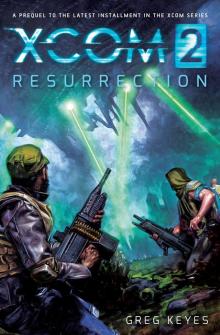 XCOM 2- Resurrection
XCOM 2- Resurrection Independence Day: Crucible (The Official Prequel)
Independence Day: Crucible (The Official Prequel)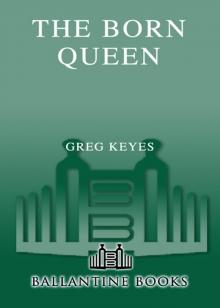 The Born Queen
The Born Queen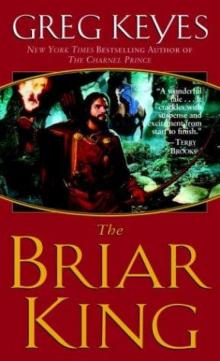 The Briar King
The Briar King Star Wars The New Jedi Order - Dark Journey - Book 10
Star Wars The New Jedi Order - Dark Journey - Book 10 Star Wars: New Jedi Order Book 8b: Emissary of the Void
Star Wars: New Jedi Order Book 8b: Emissary of the Void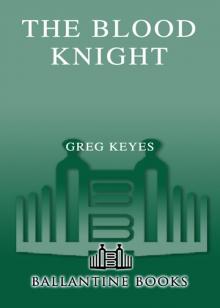 The Blood Knight
The Blood Knight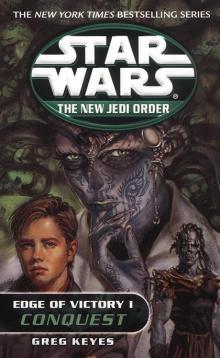 Star Wars - Edge of Victory - Book 1: Conquest
Star Wars - Edge of Victory - Book 1: Conquest Edge of Victory 2 Rebirth
Edge of Victory 2 Rebirth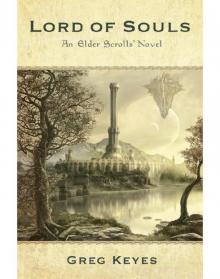 Lord of Souls: An Elder Scrolls Novel
Lord of Souls: An Elder Scrolls Novel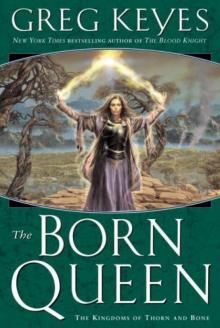 The Born Queen tkotab-4
The Born Queen tkotab-4 Rebirth: Edge of Victory II
Rebirth: Edge of Victory II Conquest: Edge of Victory I
Conquest: Edge of Victory I Emissary of the Void
Emissary of the Void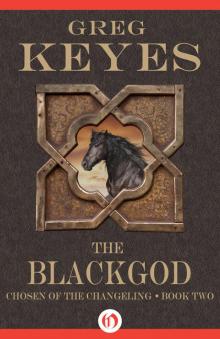 The Blackgod
The Blackgod Star Wars The New Jedi Order - The Final Prophecy - Book 19
Star Wars The New Jedi Order - The Final Prophecy - Book 19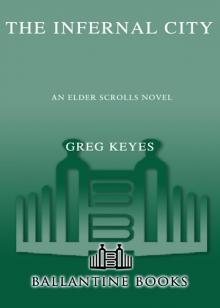 The Infernal City
The Infernal City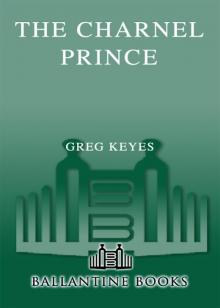 The Charnel Prince
The Charnel Prince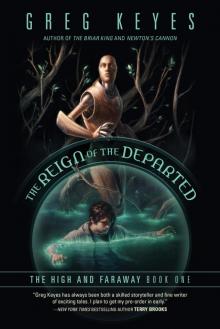 The Reign of the Departed
The Reign of the Departed Lord of Souls es-2
Lord of Souls es-2 Chosen of the Changeling
Chosen of the Changeling Dawn of the Planet of the Apes
Dawn of the Planet of the Apes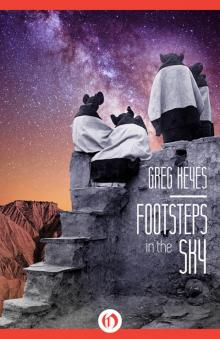 Footsteps in the Sky
Footsteps in the Sky PACIFIC RIM UPRISING ASCENSION
PACIFIC RIM UPRISING ASCENSION The Final Prophecy: Edge of Victory III
The Final Prophecy: Edge of Victory III